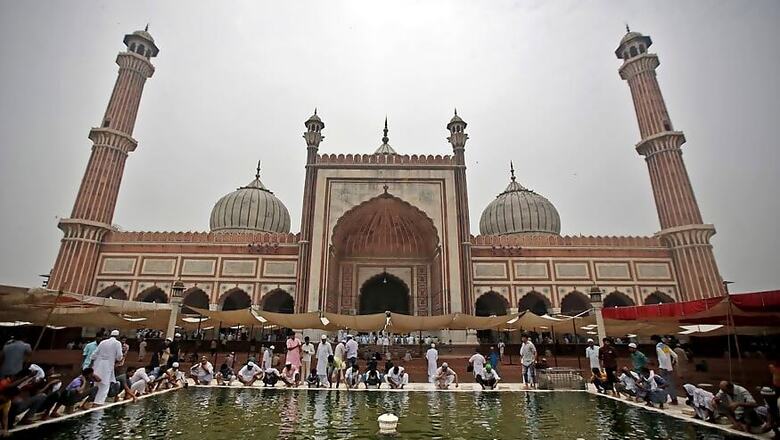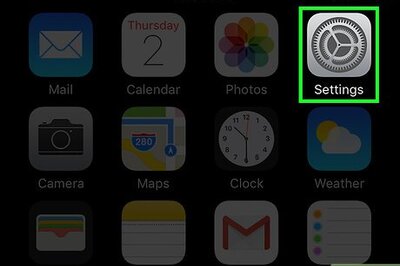
views
The Muslim organisations across the world have issued guidelines for observing fast during the month of Ramadan, which is set to begin on April 23, amid the coronavirus pandemic.
The organisations have advised the Muslims to follow the directions issued by the Ministry of Health and World Health Organisation, follow social distancing norms and not violate the lockdown rules.
The religious leaders said they expect the followers to feed the needy and hungry rather than holding “iftar parties.” The moon sighting for the holy month is expected on April 22.
Issuing guidelines, Maulana Khalid Rasheed, chairman of Islamic Centre of India Firangi Mahal in Lucknow, asked Muslims to obey the lockdown and maintain social distancing. “The Ramadan days will be marked with fasting and the evenings will se taraweeh prayers but the followers should not come in congregation,” Rasheed said in a statement.
The followers have been asked to have their suhur (meal before sunrise) and iftar (evening meal to end fast) at home and also offer taraweeh (evening prayer) from within their houses only. As fasting is a must in Islam, the changes in observing the month can be made as per the situation and circumstances demand. Hence, Rasheed asked people to not hold iftar inside mosques. “People should not congregate for iftar in masjid. Iftar should be made available only for those residing in mosques,” he said.
Firangi Mahal and Jamiat Ulema-e-Hind have asked the followers of Islam to feed the poor and labourers during the holy month. “As we are practicing social distancing, people should not hold iftar parties. Instead, that money can be used to buy food for the hungry or poor and one should try to ensure that no one goes hungry in this month of Ramadan,” said Rasheed.
Mahmood Madani, General Secretary of Jamiat Ulema-e-Hind, issued a similar advisory asking Muslims to “not pray in congregation” and offer prayers at home. “Don’t move out of the house without any reason. During Ramadan sehri and iftar should be made available to feed the poor and labourers,” Madani said. The Jamiat will issue a detailed guideline soon on ensuring observation of Ramadan during nationwide lockdown.
Other Muslim organisations have also urged people to offer all congregational prayers from inside their houses.
An advisory issued by Abul Qasim Nomani, Vice-Chancellor of Darul Uloom Deoband in Uttar Pradesh, says, “Covid-19 is aggravating, which is an issue of grave concern for all; therefore, the lockdown was extended till May 3. In these times, the guidelines set up by health department should be followed strictly and gatherings should be avoided in any case.”
In Saudi Arabia, too, the grand mufti has urged people to stay at home during Ramadan and offers even the Eid prayers from home due to the coronavirus crisis. Grand Mufti Sheikh Abdulaziz Al al-Sheikh, who is the highest religious authority in the country, said that prayers held during Ramadan and Eid al-Fitr feast should take place at home in case the coronavirus outbreak continues.
“Ramadan’s Taraweeh (evening) prayer can be performed at home if it cannot be performed at mosques due to the preventive measures taken to fight the spread of coronavirus,” he was quoted as saying by local papers of the country.
















Comments
0 comment